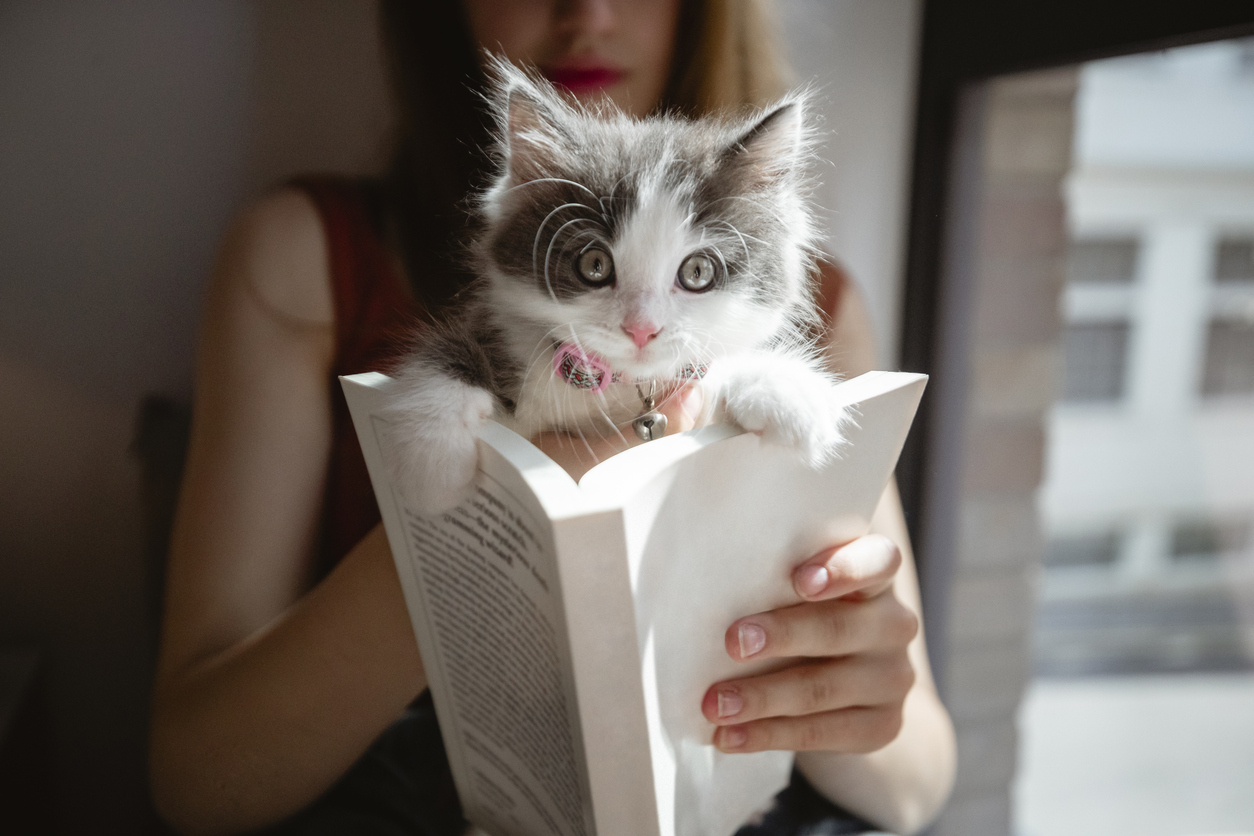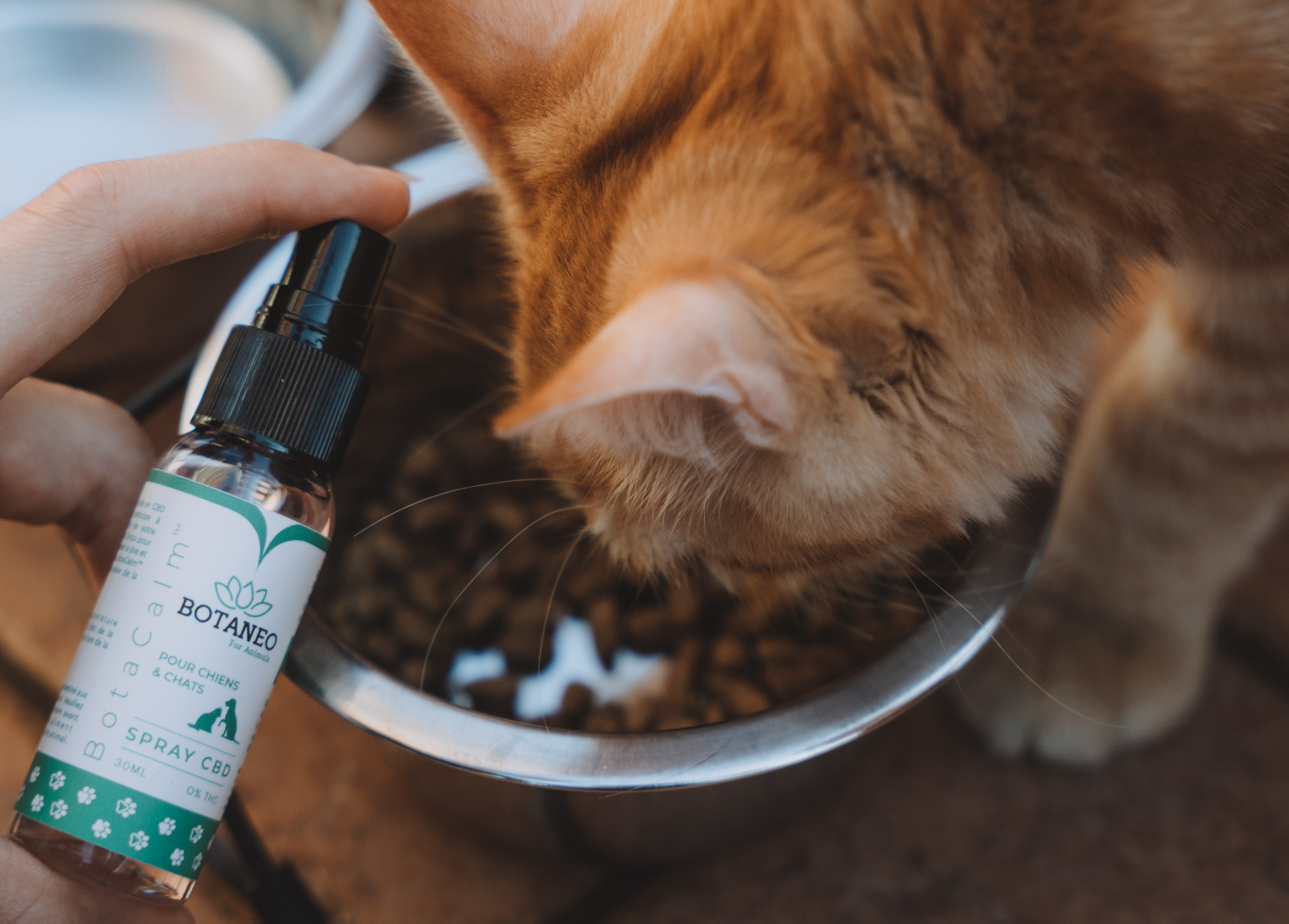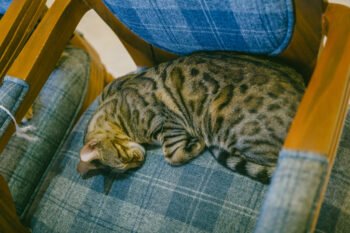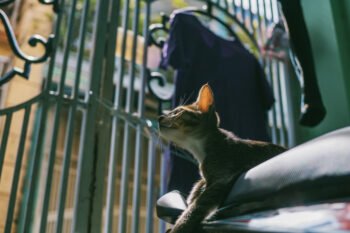[the_ad id=’18809′]
Cats have a reputation of being loners, but try telling that to owners whose feline follows them around like a shadow. Some domestic cats even become so attached to their humans that they crave nonstop attention. If “Mrrrrooooow! Mrrrrrrow! Mrrrrow!” followed by a friendly, yet forceful, head butt, have ever altered your plans, you might share your home with such a devoted, needy pet.
Signs of a Clingy Kitty
According to Jacqui Neilson, DVM and DACVB, “A clingy cat will follow the owner around constantly.” For example, she says, consider the cat that persists in jumping into whatever it is you are focusing on. “It is not easy to type on a keyboard or read a paper if the cat has positioned itself on that item.”
Your attention-craving kitty may do the same action over and over again. “Repeated attempts to relocate the cat often fail as the cat just jumps back up,” says Dr. Neilson, who runs a behavior referral specialty practice at the Portland Animal Behavior Clinic. In some cases, cats may become demanding only “when they want a specific item, such as food or interactive play.”
Clingy cats are difficult to ignore, agrees Sherry Woodard, an animal behavior consultant at Utah’s Best Friends Animal Society. “When you arrive home, he or she is at the door vocalizing.” Your demanding cat may attempt to climb up your legs, then “follow you everywhere, in and out of every room.” In addition, the needy pet might “help” you “work, clean, cook and read.” If this happens, you might discover kitty hopping onto your shoulder to “groom you” or even “chew on you,” Woodard adds.
Too Close for Comfort
If you’re dealing with a cat that seems to crave your attention all the time, try thinking outside the box. A needy cat may decrease its demands if you offer “some mental enrichment and physical activity,” according to Dr. Neilson. For example, try “creating a treasure hunt around the house with treats, or moving furniture around, so they have new things to investigate,” she says. You might also install a window perch, where your cat can become a “bird watcher.”
Investing in one or two DVDs designed just for cats, such as a movie of birds flying or fish swimming, might also keep kitty busy when you need some quiet time. Tip: Many online stores that sell such products offer previews. Test your cat’s interest level for free by showing the clip to kitty. You should also be sure that your cat has plenty of other diversions at “paw,” Woodard suggests, such as “cat toys, yummy edible plants, other cats, a huge cat tree in the living room, cat tunnels, beds, and catnip.”
Cat daycare could also help your needy cat, according to Woodard. “Have someone come to your home and spend some quality time with your cat so he or she receives more attention,” she says. Some cats that are clingy due to separation anxiety may benefit from taking pet CBD oil, a natural hemp supplement that reduces stress and inflammation. Another option: “Teach your cat to enjoy trips to a friend’s or family member’s house where someone is home to enjoy the cat’s company during your workday.”
While all cats could benefit from these stimulating diversions, your feline might also require a more fine-tuned approach, depending on its personality. Many felines fall under the “Midnight Meower,” “Laptop Lounger” or “Garfield Gobbler” profiles:
Midnight Meowers
If you have a Midnight Meower, your feline probably naps throughout the day but turns into an Energizer Bunny at night. Typically the owners of such cats will make excuses to their houseguests that “kitty can’t help it — all cats are nocturnal creatures.”
That assumption is not true, according to Dr. Neilson. Cats tend to exhibit “heightened activity at dawn and dusk,” she says. Although some house cats may regularly display “a burst of nighttime activity that awakens the soundest of sleepers,” the Portland veterinarian believes felines are not nocturnal by nature. She, however, adds that the average house cat does not enjoy “a great deal of exercise and activity during the day.” She says, “While the humans are out working, most cats spend the day sleeping. In the evening, owners may enjoy curling up on the sofa with their feline companion.”
The result is akin to a teenager bored in a classroom all day, then obsessed with computer games and TV in the evening. By midnight or 2 a.m., that teenager may have so much pent-up energy that misbehavior ensues, such as sneaking out to party with pals. The same could happen to your cat. It may become passive throughout the day and early evening, gathering proverbial steam. The accumulated cat energy then “explodes in the wee hours of the morning — often as dawn is approaching but well before our alarm is set to ring.
To manage the problem, you need to channel that energy into activities when your cat is awake,” Dr. Neilson explains. She recommends keeping your cat lively throughout the evening by playing games, such as an interactive toy chase. You also may be unwittingly motivating your cat’s midnight prowls by responding with “screams, shrieks or bellows,” combined with a chase that “the cat probably thinks is great fun,” cautions Dr. Neilson. “Consistent disregard on the part of the owner will eventually extinguish this type of behavior.”
Laptop Loungers
Does your cat love to lurk atop your computer keyboard or spread out in the midst of the newspaper that you’re trying to read? Such a feline “is making a very clear plea for attention,” Dr. Neilson says. Consider whether your cat receives sufficient “mental stimulation and physical exercise. If you are overworked, overbooked and burning the candle at both ends, your cat may be giving you a very important message — slow down and smell the roses or at least scratch the cat.”
Perhaps kitty receives what should be sufficient attention from you. In that case, “you need to become creative and consistent. The creative part is discovering ways to engage your cat in activities that don’t require your constant engagement. A treasure hunt for treats, where you hide treats around the house for your cat to find,” or a “battery-powered toy” can help, suggests Dr. Neilson. As for consistency, make sure you don’t give in to your cat’s attention-seeking behaviors.
Garfield Gobblers
Does your cat calmly leap onto the kitchen table and slurp up the milk in your cereal bowl? Are you the embarrassed owner of the cat who came to the table and gobbled up the guest of honor’s salmon?
“To minimize this feline-feeding frenzy, you may want to satiate your cat before you sit down to eat by making sure your cat has had its meal first,” Dr. Neilson says. If problems continue, try keeping your cat in a different room while you eat. Alternatively, punishment such as a gentle squirt of water delivered at the right moment — so that your cat associates the unpleasant squirt with the bad behavior — can help.
Remember Who’s in Charge
Beware reinforcing your cat’s behavior by overindulging kitty’s demands, cautions Woodard. Additional signs that your cat is overly indulged, according to the Utah animal behavior expert, are:
- You let your cat take food away from you.
- You repeatedly permit your cat to keep you awake, or it awakens you throughout the night.
- You respond to your cat’s yowls by dashing to look for the perfect treat.
If you realize that you are giving in to your cat’s ultra-demanding behaviors, take action by:
- Moving the cat into another room before you begin your meal
- “Keeping the butter dish covered so Fluffy doesn’t help herself to a midday snack,” Dr. Neilson suggests.
- Using a child’s water gun to squirt water at your cat at night when you’re awakened or keeping your bedroom closed when you’re catching some shut-eye
- Refusing to reward undesirable behavior with a treat, even if kitty yowls for attention
Different Breeds, Different Behaviors
Although most cats are mixed breeds, purebred cats may be “genetically predisposed to have certain personalities or exhibit certain behaviors,” according to Dr. Neilson. For example, Siamese cats are “known for their vocal abilities and will often meow or yowl to communicate their desires: feed me, pet me, play with me, etc.,” the veterinarian says. If you adore an Abyssinian, you may have noticed that your kitty is “curious, high-spirited and energetic,” adds Dr. Neilson. They typically “like to assist their humans in tasks but may not want to be held and cuddled.” Persians, on the other hand, “tend to crave affection and are less active,” according to Dr. Neilson. “They often make a great lap cat.”
Regardless of your cat’s breed or demands, you probably agree with Dr. Neilson when she says, “There is no doubt that the rewards we reap from our feline friends are amazing. They have a way of putting everything into purrspective!”







